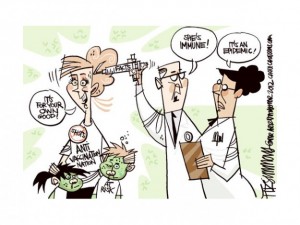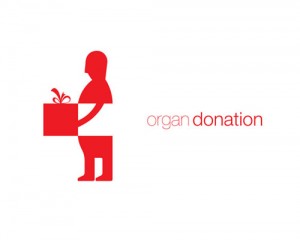The reading on “Libertarian Paternalism” takes a concept that has for years been seen in a negative light and gives it a positive spin (Thaler and Sunstein). When discussing the history of health care and public health in America especially, the concept of paternalism is typically thrown around in tones of disgust and shame. Authority figures in the realm of health aren’t qualified to decide what is best for us—only we are capable of making those decisions.
In our discussions surrounding informed consent and autonomy, we continuously mulled over whether or not health care professionals have the right to make decisions or even narrow down treatment options for patients. I have come to the conclusion that they largely do have this authority and duty. Though the model of the doctor/patient relationship could use some serious work, patients do not need to know about each option available to them; being informed is important, but doctors are capable of narrowing down treatment options without full patient partnership.
Thaler and Sunstein take this question of the morality of paternalism to a different level. They use examples of a less immediate nature such as retirement plans and cafeteria layouts to illustrate the unavoidable nature of paternalism and just how beneficial it can be, suggesting that we not focus on whether or not paternalism is right in certain cases but how to choose the best paternalistic options.
Though the examples they use are simple, I believe Thaler and Sunstein have a point regarding paternalism in public health. People will most often do what is best for themselves. Public health is the improvement and maintenance of the health of communities, not the individual—thus it is not beneficial to rely upon individuals to make effective decisions in public health.
What is interesting to me, though, is that this argument can then stand as a counterargument in the informed consent and autonomy debate. If individuals do what is in their own interests, isn’t it then moral to leave health care decisions fully up to them? It would seem that if one asked Thaler and Sunstein, the answer would be yes. However, although I am convinced of their argument for paternalism in public health, I believe libertarian paternalism can also be applied to treatment decisions in health care.
Individuals are—to an extent—capable of deciding what is best for them; but in the realm of health care, there is a lot of knowledge that professionals have access to that the average person does not. Even with thorough information—it is difficult for patients to make these sometimes life altering decisions. What is so wrong with a little libertarian paternalism? As Thaler and Sunstein mention in their essay, in everyday situations in which this type of paternalism is used, it is because the people do not want to undergo the hassle of making an initial decision themselves, or they feel as though they are not specialized enough in the matter to make the appropriate decision on their own.
Though I have never before viewed paternalism positively, I believe this essay makes a sound argument for it. This does not mean that paternalism is good; it just means that there are several situations in which it is conducive to efficiency and genuine well-being which should make it acceptable.
Thaler, Richard H., and Cass R. Sunstein. “Libertarian Paternalism.” Arguing About Bioethics (2003): loc. 10829-10968. Print.

